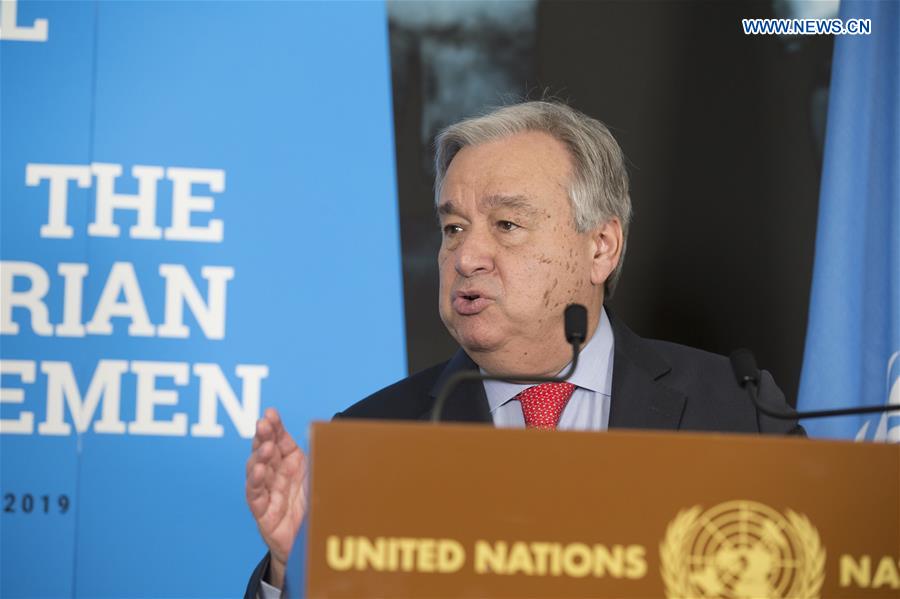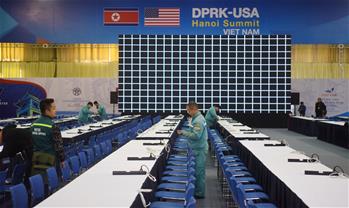
United Nations Secretary-General Antonio Guterres delivers a speech after the High-Level Pledging Event for the Humanitarian Crisis in Yemen in Geneva, Switzerland, on Feb. 26, 2019. United Nations Secretary-General Antonio Guterres on Tuesday described the pledging conference for humanitarian aid for war-plagued Yemen a "success" after donation assurances reached 2.6 billion U.S. dollars, up from 2 billion U.S. dollars in 2018. (Xinhua/Xu Jinquan)
GENEVA, Feb. 26 (Xinhua) -- UN Secretary General Antonio Guterres on Tuesday described the pledging conference for humanitarian aid for war-plagued Yemen a "success" after donation assurances reached 2.6 billion U.S. dollars, up from 2 billion U.S. dollars in 2018.
"Today's pledging conference can be considered a success," Guterres told journalists at the European headquarters of the United Nations here at the close of the conference sponsored by Sweden and Switzerland.
"The donors have pledged 30 percent more than last year to help address the dramatic humanitarian situation in Yemen," he said.
Most of the increase over the 2018 pledges came from Saudi Arabia and the United Arab Emirates.
Saudi Arabia is leading an Arab military coalition that intervened in Yemen in March 2015 to support the government of President Abd-Rabbu Mansour Hadi after Houthi rebels forced him into exile and seized much of the country's north, including the capital Sanaa.
The four-year-long civil war in Yemen has killed tens of thousands of people, mostly civilians, displaced 3 million others, and pushed the country to the brink of famine.
The pledging conference is just a start, "to make sure we address the extremely dramatic needs of the Yemeni people," said the UN chief.
He praised the Yemenis for always opening their borders to people coming from Somalia and other parts of the region.
The UN chief said they did this with "enormous generosity granting all Somalis prima facie refugee status," noting how that compares to the European debate about refugees and migrants.
While it is essential to address the humanitarian needs, Guterres said what is "most important is to end the conflict," which has been ongoing for nearly four years.
He said his office understands the problems in the implementation of a ceasefire agreement hammered out in Stockholm in December.
Guterres said the UN would not give up its efforts to make sure that the Stockholm agreement is implemented, and with that to "start the process for peace to be reestablished in Yemen."
The Houthis launched a large military campaign and seized the capital Sanaa in late 2014 along with other main provinces, forcing Yemen's president and his government to flee to the southern port city of Aden.
The internal military conflict between the Houthis and the Saudi-backed Yemeni government has recently entered its fourth year, aggravating the suffering of Yemenis and deepening the world's worst humanitarian crisis.
Three-quarters of the population, or more than 22 million people, urgently need some form of humanitarian assistance, including 8.4 million people who struggle to find their next meal.















